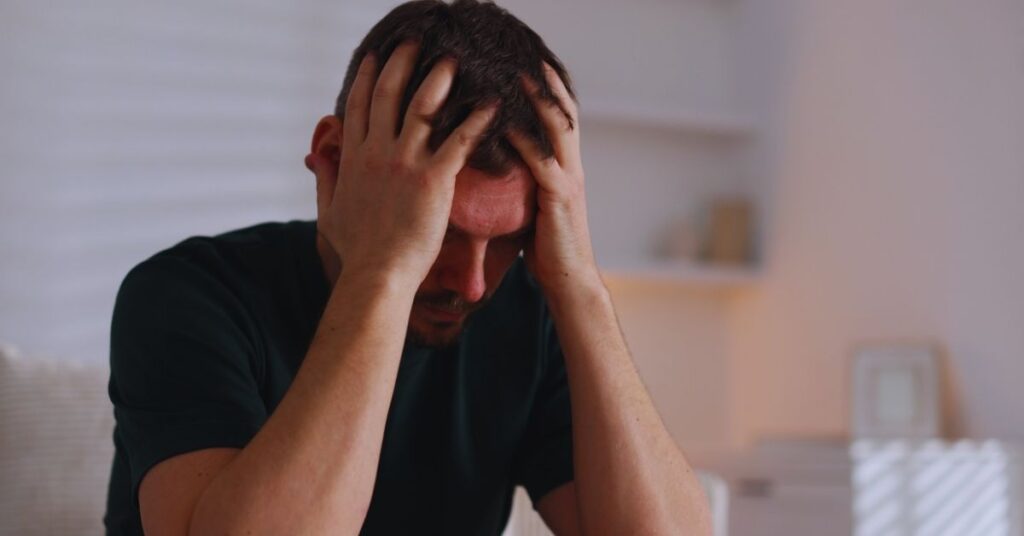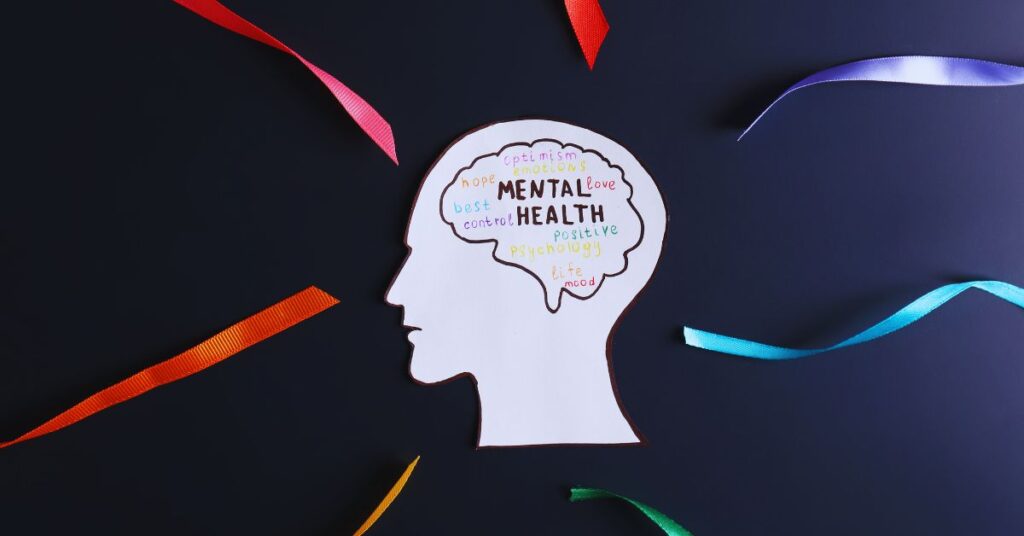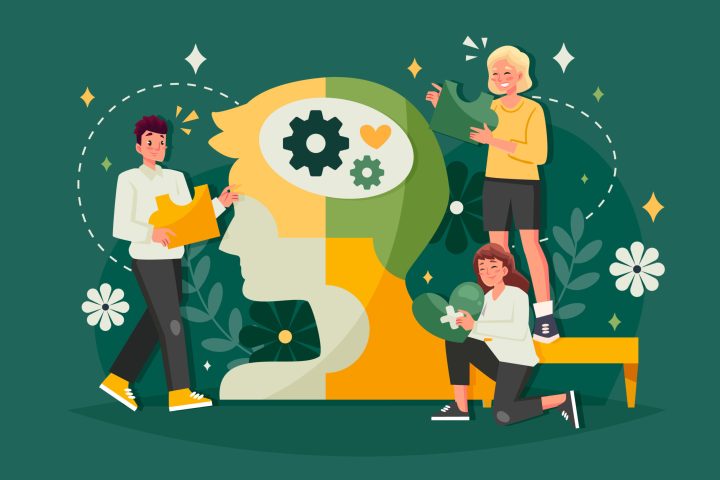Dealing with depression can be overwhelming. Finding ways to distract yourself can help.
Depression affects millions of people worldwide. It can make daily life seem impossible. But there are ways to ease the burden. Distraction techniques can provide relief and a break from negative thoughts. Simple activities can shift your focus and lift your mood.
From physical exercises to creative hobbies, various methods can help. This guide will explore practical ways to distract yourself from depression. Each method is easy to understand and implement. You don’t need special skills or equipment. The goal is to find what works best for you. By the end of this post, you will have a toolkit of strategies to manage your feelings. Let’s get started.
Topic of Contents
ToggleRecognize The Signs
Recognizing the signs of depression is the first step towards healing. It’s important to understand early symptoms and know when to seek help. This can help you or someone you care about manage depression effectively.
Early Symptoms
Early symptoms of depression can be subtle. They might include:
- Feeling sad or empty most of the time
- Loss of interest in activities once enjoyed
- Changes in appetite or weight
- Difficulty sleeping or sleeping too much
- Fatigue or lack of energy
- Feeling worthless or guilty
- Difficulty concentrating or making decisions
- Thoughts of death or suicide
These symptoms can vary in intensity. Some may experience just a few, while others might have many. It’s crucial to pay attention to any changes in mood or behavior.
When To Seek Help
Knowing when to seek help is essential. You should consider reaching out to a professional if:
- Your symptoms last more than two weeks
- Your daily life is affected
- You have thoughts of harming yourself
- You’re unable to cope with daily stress
- You’re withdrawing from social activities
Seeking help is a sign of strength. It can lead to effective treatment and support. Remember, you are not alone, and help is available.
| Signs | Action |
|---|---|
| Persistent sadness | Consult a therapist |
| Loss of interest | Join a support group |
| Changes in appetite | Talk to a nutritionist |
| Fatigue | Schedule a medical check-up |
Physical Activities
Engaging in physical activities can be a powerful way to distract yourself from depression. Moving your body helps to release endorphins, which are known as the “feel-good” chemicals in your brain. These activities can lift your mood and improve your overall mental well-being. Let’s explore some effective physical activities that you can incorporate into your daily routine.
Exercise Routines
Creating a regular exercise routine can provide structure to your day. This helps keep your mind occupied. Here are some simple exercise routines to get you started:
- Walking: A brisk walk for 30 minutes can do wonders. It helps clear your mind and boost your mood.
- Yoga: Yoga combines physical postures, breathing exercises, and meditation. This can help reduce stress and promote relaxation.
- Strength training: Lifting weights or using resistance bands can improve your physical strength. It also enhances your self-esteem.
- Cardio workouts: Activities like running, cycling, or dancing get your heart pumping. These can be very effective in lifting your spirits.
Outdoor Adventures
Spending time outdoors can significantly improve your mental health. Nature has a calming effect on the mind. Consider these outdoor adventures:
- Hiking: Explore trails and enjoy the beauty of nature. Hiking combines physical activity with the tranquility of natural surroundings.
- Gardening: Tending to plants and flowers can be very therapeutic. It provides a sense of accomplishment and connection to nature.
- Picnicking: Pack a simple meal and head to a local park. Enjoying a meal outdoors can be a refreshing change of scenery.
- Beach activities: If you live near a beach, try activities like swimming, beach volleyball, or simply walking along the shore.
Incorporating these physical activities into your routine can help you manage depression. They not only keep you physically active but also provide mental and emotional benefits. Start small and gradually build up your activity level. Remember, the key is to keep moving and stay engaged.
Creative Outlets
Engaging in creative outlets can be a powerful way to distract yourself from depression. These activities stimulate the mind, offering a productive way to channel emotions. They also provide a sense of accomplishment and joy.
Art And Crafts
Art and crafts can be incredibly therapeutic. Painting, drawing, or sculpting lets you express feelings non-verbally. The focus required for these activities can shift your mind from negative thoughts. You don’t need to be an expert. Just start with simple projects. Create something with your hands. The process itself is healing.
Writing And Journaling
Writing and journaling offer a private way to express emotions. Putting thoughts on paper helps clear the mind. Journaling daily about your feelings can offer insights and relief. Write stories, poems, or even letters to yourself. The act of writing can provide a sense of release.
Mindfulness Practices
Mindfulness practices can help distract yourself from depression. They bring your focus to the present moment. This helps reduce negative thoughts and feelings. These practices are easy to learn and can be done anywhere. Below are some techniques you can try.
Meditation Techniques
Meditation helps calm your mind. It involves focusing on a single point, like your breath. Start by sitting in a quiet place. Close your eyes. Focus on your breathing. Inhale slowly. Exhale slowly. If your mind wanders, gently bring it back to your breath. Practice this for five minutes daily. Gradually increase the time as you get comfortable.
Breathing Exercises
Breathing exercises help reduce anxiety and stress. They are simple and effective. Sit or lie down in a comfortable position. Take a deep breath in through your nose. Hold it for a few seconds. Slowly exhale through your mouth. Repeat this process several times. Focus on the rhythm of your breath. This can create a sense of calm and relaxation.
Social Connections
Social Connections play a vital role in managing depression. Engaging with others can provide emotional support and a sense of belonging. It can distract you from negative thoughts and feelings. Here are some ways to build and maintain social connections:
Joining Support Groups
Joining a support group can be very helpful. You can meet others who understand what you’re going through. These groups offer a safe space to share your experiences and feelings. Many communities have local support groups. You can find them through mental health organizations or community centers. Online support groups are also available. These can be useful if you prefer to connect from home. Websites and social media platforms often have groups dedicated to mental health support. You can join these groups to find help and advice.
Spending Time With Loved Ones
Spending time with loved ones can lift your spirits. Friends and family provide comfort and understanding. They can offer a listening ear and a shoulder to lean on. Plan regular activities with them. It could be as simple as watching a movie together or going for a walk. Make an effort to stay in touch. A quick phone call or text message can make a big difference. Let your loved ones know how you’re feeling. They care about you and want to help. Consider creating a list of activities you can do with others. This can include:
- Having a meal together
- Playing board games
- Going to a local event
- Exercising together
- Joining a class or workshop
These activities can provide a sense of normalcy and joy. They can also help take your mind off your worries.
Productive Hobbies
Productive hobbies can be a powerful tool to distract yourself from depression. Engaging in activities that require focus and creativity can help shift your mindset. These hobbies offer a sense of accomplishment and joy. Let’s explore some productive hobbies you can try.
Gardening And Nature
Gardening can be very therapeutic. It allows you to connect with nature. Planting seeds and watching them grow can be deeply satisfying. The fresh air and sunlight lift your mood. Tending to plants requires attention and care, which keeps your mind occupied. You can start with a small garden or even indoor plants. This hobby is a great way to find peace and purpose.
Cooking And Baking
Cooking and baking are creative outlets. They allow you to experiment with flavors and ingredients. Preparing meals can be a rewarding experience. It engages your senses and requires focus. You can try new recipes or create your own. Baking can be especially comforting. The process of mixing and measuring can be soothing. Plus, you get to enjoy delicious treats. This hobby provides a sense of achievement and satisfaction.
Entertainment Options
Dealing with depression can feel overwhelming. Finding ways to distract yourself is crucial. Entertainment options provide a welcome escape. They can help shift focus and lift your mood.
Movies And Tv Shows
Movies and TV shows offer a great distraction. Pick genres that make you happy. Comedies can lighten your mood. Adventures can transport you to another world. Streaming platforms have vast libraries. Explore new series or revisit old favorites. Invite friends for a movie night. Shared experiences can bring joy.
Reading Books
Reading books can be a powerful escape. Choose genres that interest you. Fiction can take you on incredible journeys. Non-fiction can teach you something new. Libraries and bookstores have endless options. Try joining a book club. Discussing stories with others can add depth to your experience.
Professional Help
Depression can be overwhelming. Seeking professional help offers structured support and guidance. This section explores therapy options and medication treatments.
Therapy Options
Therapy is a safe space to share feelings. Different types of therapy can help manage depression.
- Cognitive Behavioral Therapy (CBT): Teaches coping skills to change negative thought patterns.
- Interpersonal Therapy (IPT): Focuses on improving relationships and communication.
- Psychodynamic Therapy: Looks at past experiences to understand current issues.
Therapists provide tools to handle emotional challenges. They help you set and achieve goals.
Medication And Treatments
Sometimes, therapy alone is not enough. Medication can be an effective treatment.
| Type | Purpose |
|---|---|
| Antidepressants | Reduce symptoms of depression |
| Anti-Anxiety Medications | Help reduce anxiety symptoms |
| Antipsychotics | Used for severe depression |
Doctors may suggest other treatments. These can include lifestyle changes and support groups. Combining therapy and medication often yields the best results.
Frequently Asked Questions
How Can Hobbies Help With Depression?
Engaging in hobbies can shift your focus and improve your mood. They provide a sense of accomplishment and enjoyment.
What Are Quick Ways To Distract From Negative Thoughts?
Physical activities, listening to music, or engaging in a hobby can quickly divert your mind.
Can Social Interactions Alleviate Depressive Feelings?
Yes, connecting with friends or family can offer support, reduce loneliness, and improve your mood.
Do Mindfulness Exercises Help With Depression?
Mindfulness exercises can reduce stress and help you stay present, which can alleviate depressive symptoms.
Conclusion
Finding ways to distract yourself can help manage depression. Try engaging in activities that bring joy. Exercise, hobbies, or spending time with loved ones can uplift your mood. Small steps make a big difference. Don’t be afraid to seek professional help if needed.
Remember, you are not alone. Taking care of yourself is important. Practice self-compassion and be patient with your journey. Each day is a new opportunity for improvement. Keep trying, and stay hopeful.







